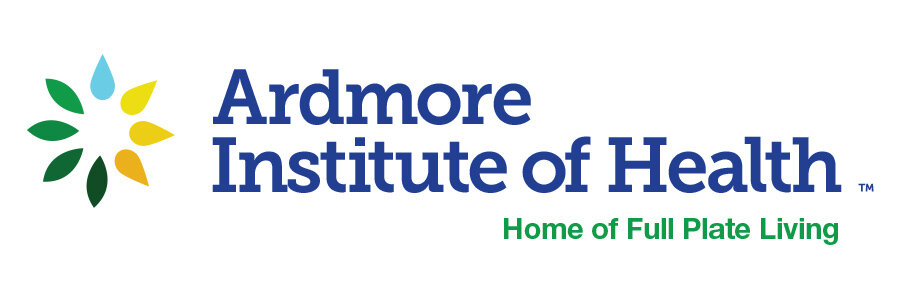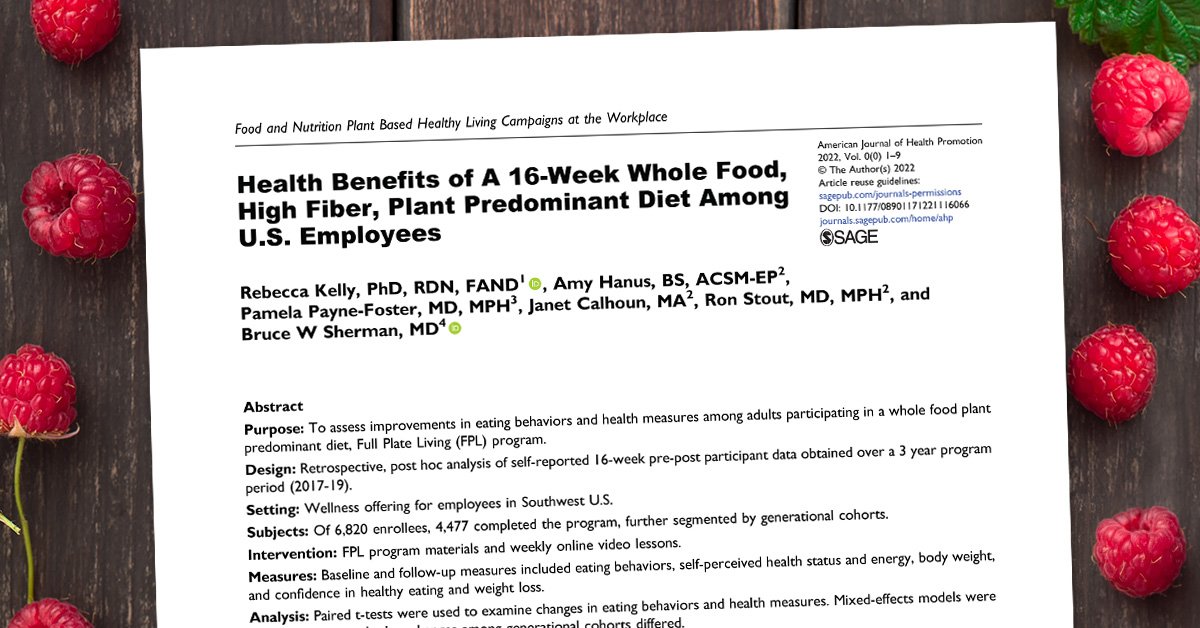Health Benefits of A 16-Week Whole Food, High Fiber, Plant Predominant Diet Among U.S. Employees
This study of corporate employees participating in the online Full Plate Living program found significant pre-post improvements in employee’s nutrition and wellbeing. For example, reported servings of fruits, vegetables, and beans increased. Employees lost weight and reported increased energy and improved confidence in making healthy food choices. The article was published in the American Journal of Health Promotion.
Abstract
Purpose
To assess improvements in eating behaviors and health measures among adults participating in a whole food plant predominant diet, Full Plate Living (FPL) program.
Design
Retrospective, post hoc analysis of self-reported 16-week pre-post participant data obtained over a 3 year program period (2017-19).
Setting
Wellness offering for employees in Southwest U.S.
Subjects
Of 6,820 enrollees, 4,477 completed the program, further segmented by generational cohorts.
Intervention
FPL program materials and weekly online video lessons.
Measures
Baseline and follow-up measures included eating behaviors, self-perceived health status and energy, body weight, and confidence in healthy eating and weight loss.
Analysis
Paired t-tests were used to examine changes in eating behaviors and health measures. Mixed-effects models were used to examine whether changes among generational cohorts differed.
Results
Significant pre-post improvements were demonstrated for all measures, including servings of fruits (1.54 to 2.34), vegetables (2.05 to 2.87), beans (.63 to .99), and weight loss (3.5) (P < .001). Self-perceived health and energy values, and confidence in making healthy food choices and losing weight improved (P < .001). Improvements were observed across generational cohorts (P < .001).
Conclusion
The FPL healthy eating approach has a beneficial impact on health measures across generational cohorts, and may be an effective addition to lifestyle medicine and corporate wellness offerings. Longer-term program evaluation is warranted.

